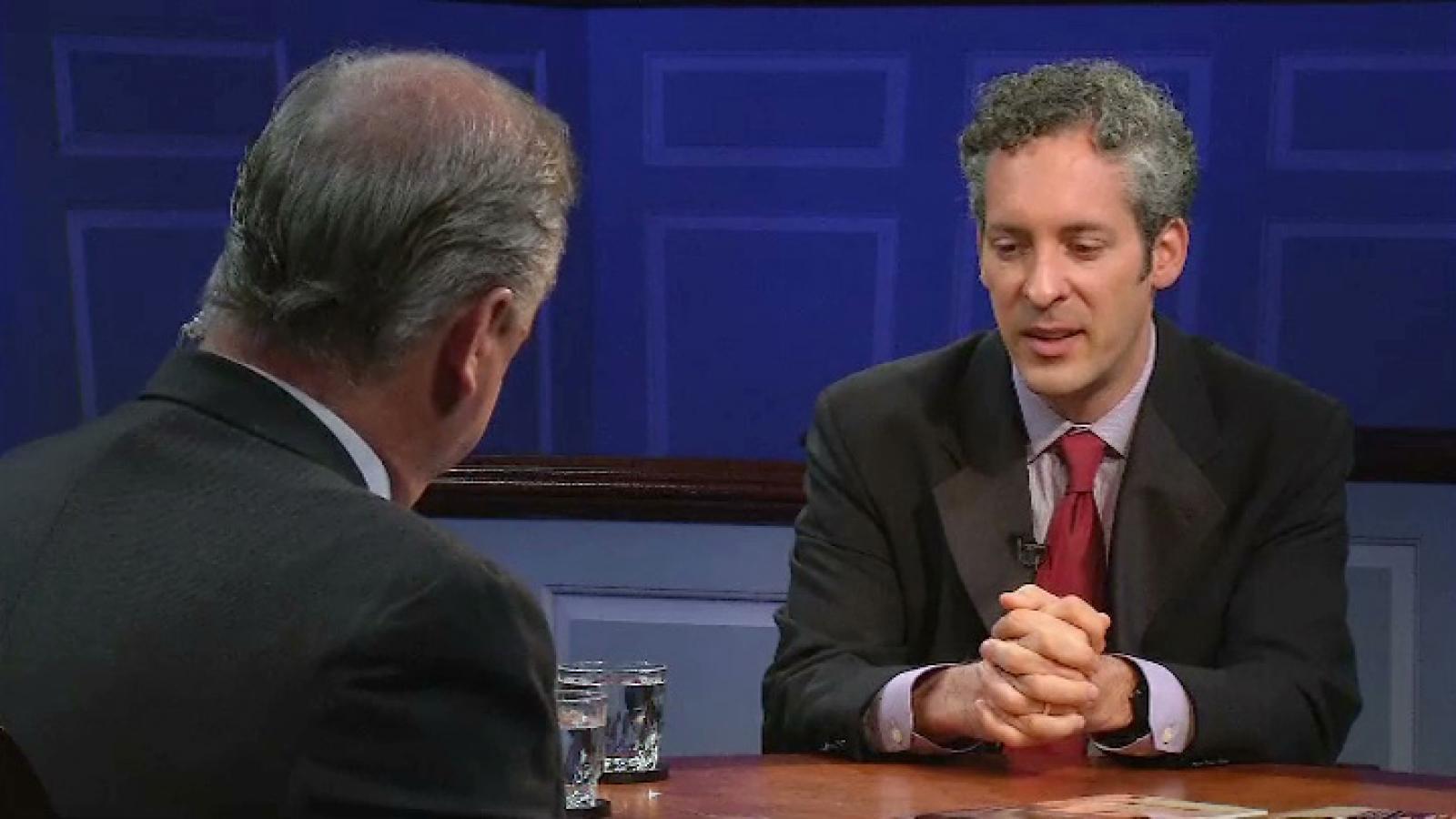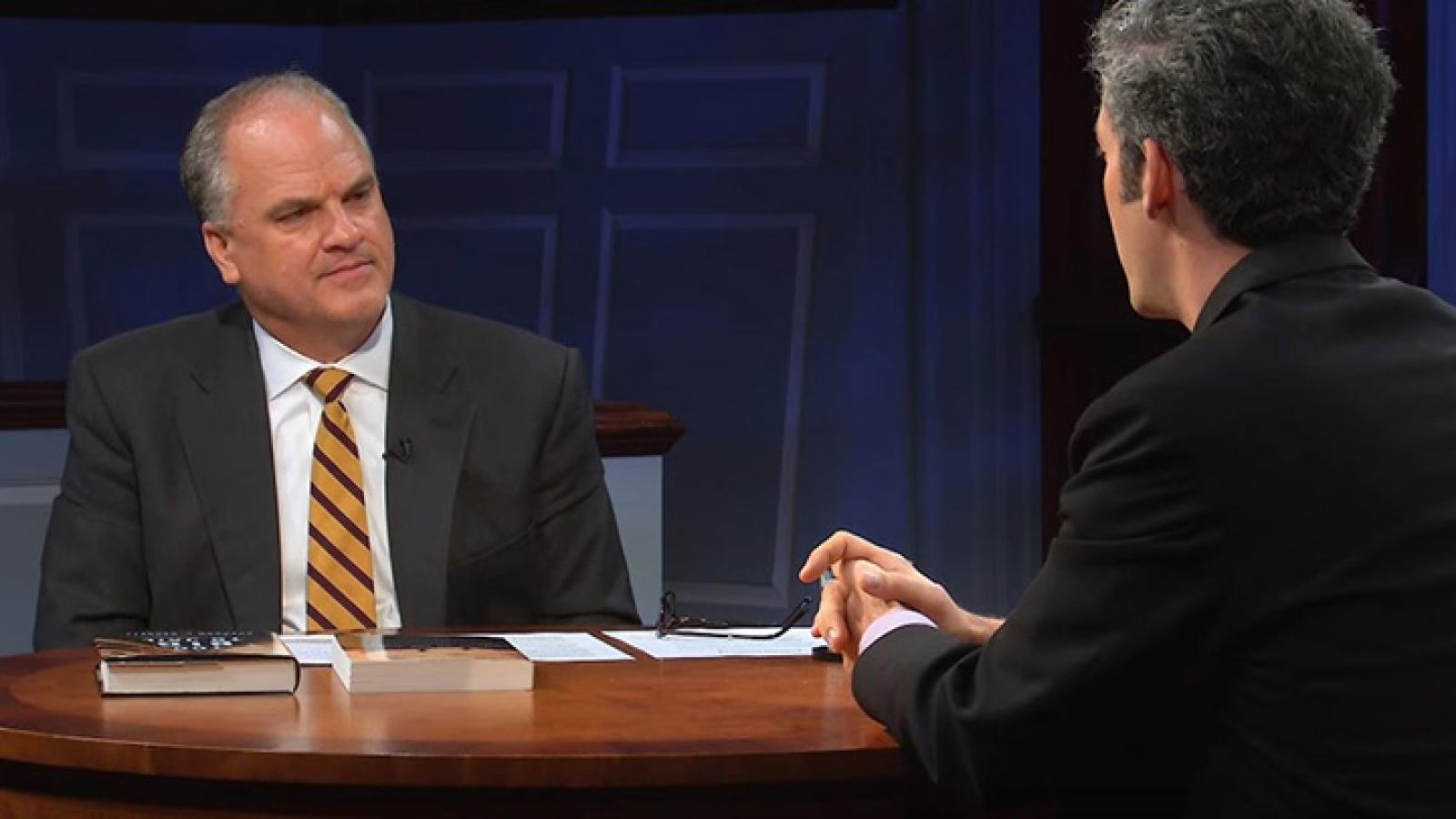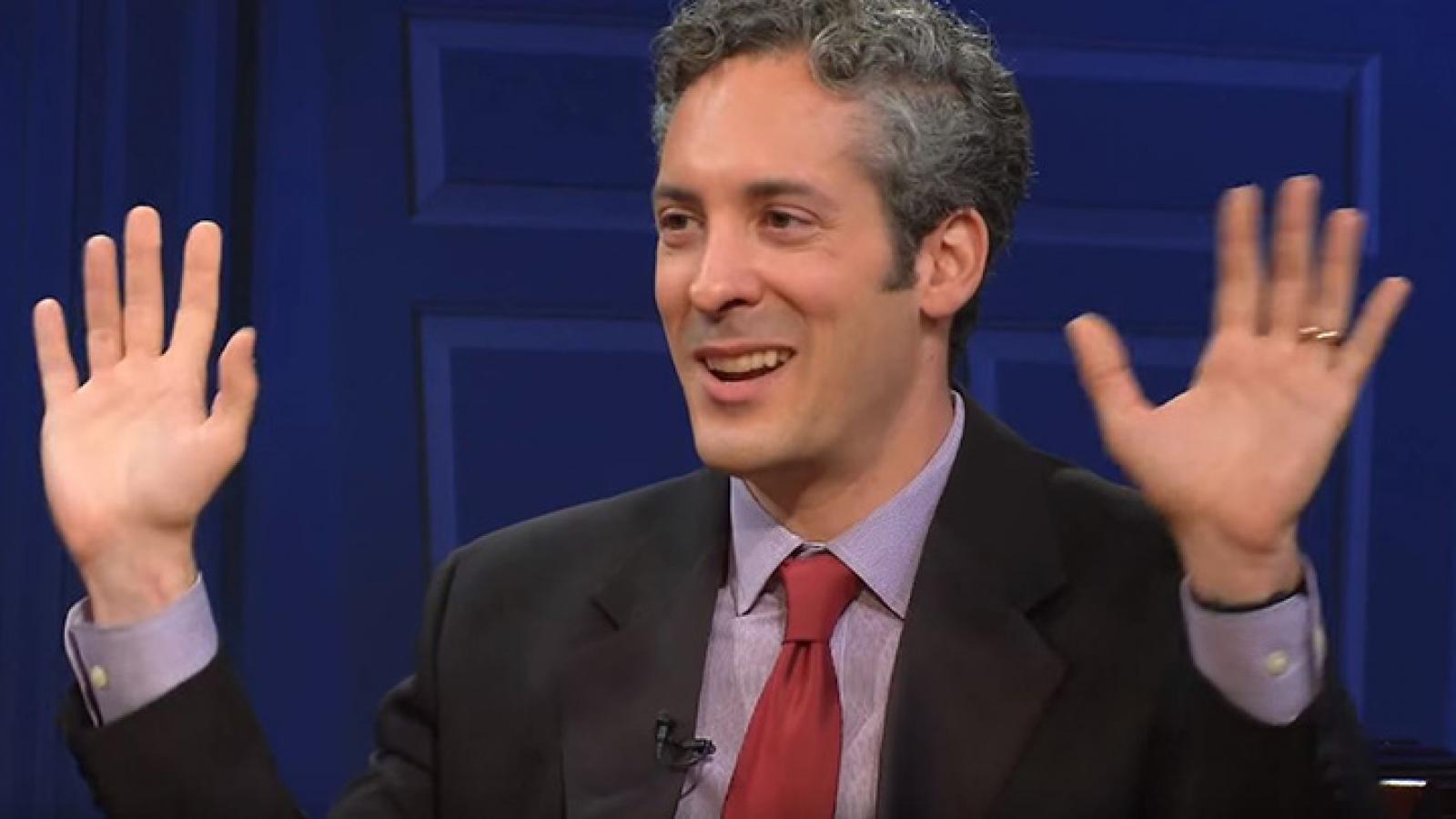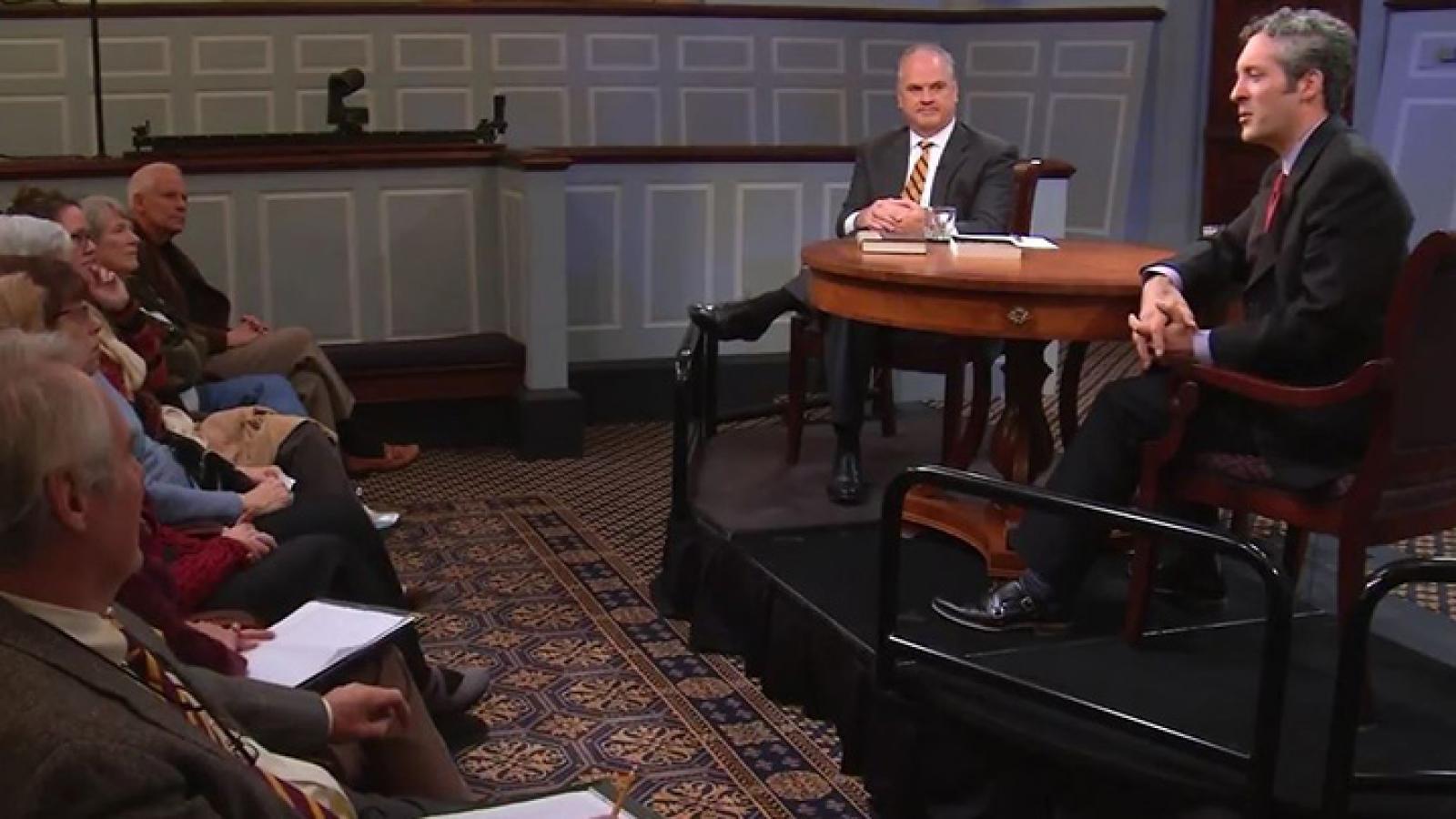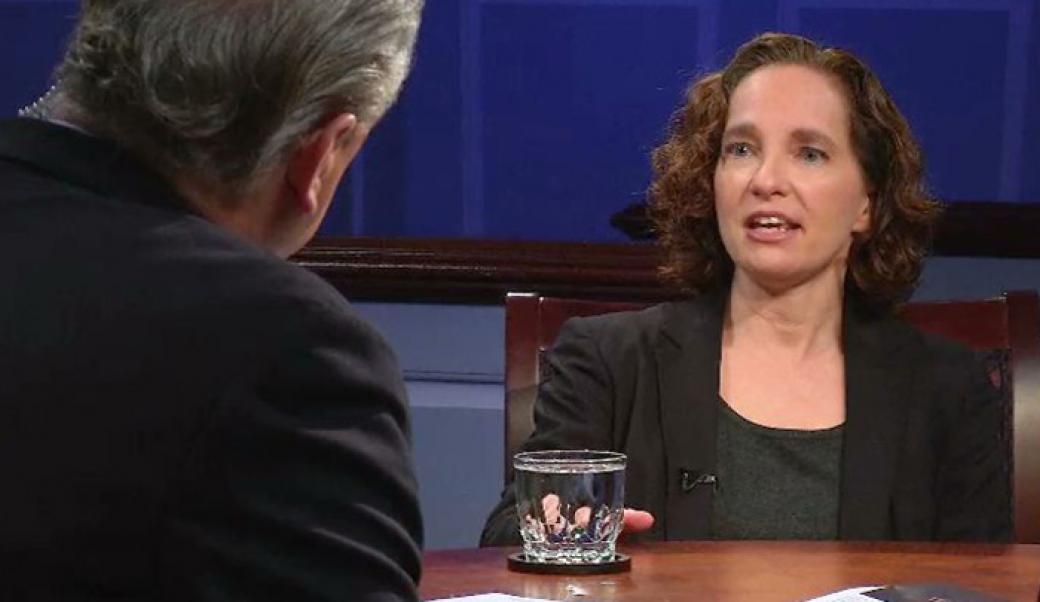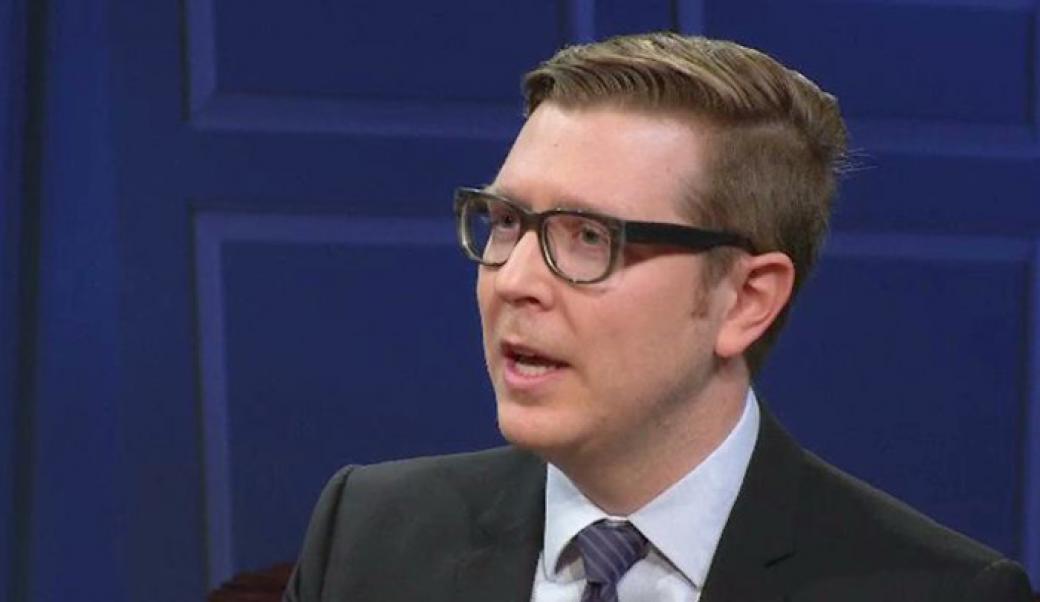About this episode
February 01, 2016
Brandon Garrett
Brandon Garrett is the Roy L. and Rosamond Woodruff Morgan Professor of Law at the University of Virginia, where he teaches criminal procedure, wrongful convictions, habeas corpus, corporate crime, civil rights, and constitutional law. In this episode he discusses the many ways our justice system is broken and what we can do to fix it.
Law and Justice
The dysfunction of American justice
Transcript
00:41 Doug Blackmon: Welcome back to American Forum. Americans are living through a time of profound doubt about our systems of justice. Police officers are under indictment for allegedly murdering civilians on our roughest streets. More than 300 people who had been sentenced to death or lengthy prison terms for terrible acts of violence have been proven innocent as a result of new DNA technology. It’s now all but certain that in the past, we executed many innocent citizens for crimes they did not commit—and that even today yet more innocent prisoners probably remain on death row, awaiting the executioner. And at the highest levels of society, Americans remain broadly frustrated that there has been little punishment of the executives at banks and other corporate players whose illegal manipulation of financial markets triggered the economic collapse that cost Americans billions of dollars, millions of jobs and for thousands, their homes and savings. FACTOID: 333 people have been exonerated by DNA, 144 were on death row Joining us to sort through this confusing legal landscape is Brandon Garrett. He’s a distinguished professor of law at the University of Virginia, the author of a seminal book on false convictions. He is also the author, most recently, Too Big to Jail: How Prosecutors Compromise with Corporations. Thanks for being here.
Brandon Garrett: Thank you.
Blackmon: So the two books that you have written, both which I ‘ve got here in front of us, in some sense capture the range of this this confusing American relationship with our justice system right now. On the one hand, it’s a book about over prosecution of poor people and minorities in some respects at one end of the spectrum. And at the other end of the spectrum you’ve written a book about whether it’s under prosecution or confused prosecution of a very different set of players in American society. But so how did we end up in broad terms at in such a state of contradiction about our justice system?
Garrett: Well I think we should judge our criminal justice system by how well it handles, not just the cases of the least privileged offenders and the innocent who obviously shouldn’t be charged or prosecuted at all. But we should also judge our system by how it treats the most privileged offenders. You have cases where companies spend literally hundreds of millions of dollars on their own defense. More than the money spent in the entire criminal justice systems. The defense of the poor. And what’s fascinating about these corporate cases is that the tables are turned and all of a sudden the prosecutors look like the David to the corporate Goliath. And so I do think it’s important to look at the high and low to see what’s wrong and what’s out of balance in our criminal justice system.
Blackmon: Why don’t you start with back before the financial collapse in the period of the big accounting scandals that so many corporations ran into trouble on and in particular and the most famously Enron and Arthur Anderson but the approach that the government took to those cases and then how that played out. FACTOID: Rampant accounting fraud led to collapse of Enron in 2001
Garrett: Yes, so corporate prosecutions have gone through an unbelievable metamorphosis over the last two decades. It used to be that no one talked about how to prosecute a company. The idea was well what’s the point really? You couldn’t really find them very much before the sentencing guidelines took effect for corporations in the early ’90s. And it was really, really unusual to even bother prosecuting a company. It just wasn’t a priority. That changed in the ’90s and you start to see it here and there and some corporate prosecutions. A company can be prosecuted for the act of any of its employees if they have committed a crime.
04:15 Blackmon: Technically like the company is another person.
Garrett: It’s like a master-servant relationship in a way. And it comes from master-servant law. The corporation is the master, it is responsible for what its agents do. So prosecutors have had this power to go after corporations for more than a hundred years and there are incredibly criminal statutes they could use in federal courts to target companies but they didn’t start to do it until really after Enron. And I think the concern was well look, if you convict a company you could put it out of business. There are so many suspension and charter rules where a felony convict can’t do business with public companies. He can’t do accounting for public companies if you have a felony conviction. Now a lot of those rules were designed for people like you and me or a doctor or a lawyer or an accountant might get debarred if they’re a criminal. Well the rules apply to corporations too and the concern was you would literally have a corporate death penalty if you convict a company. And that’s what they said. Prosecutors then used the corporate death penalty. They used it against Arthur Anderson. And that’s the story with which I open the book where you have document destruction on a scale that few had seen before. Arthur Anderson gets wind from the SEC that they are going to be investigated for their role in doing the accounting for Enron.
05:35 Blackmon: And back up just a second and remind us about Enron and what had happened in Enron and how Arthur Anderson came into that story.
Garrett: Well Arthur Anderson was doing a huge amount of work for Enron. It was one of their top clients. FACTOID: Enron worth $70 billion at peak, worthless 17 months later The partner, David Duncan, who was in charge of Enron accounts was a rising star within Arthur Anderson. Arthur Anderson was trying to shed its image as sort of stuck in the mud accountants. We’re doing exciting things now. We’re actually imbedded within companies, consulting with them basically when the SEC indicated that they might begin investigating Arthur Anderson everyone freaked out. There was panic. And what they did was they had multiple meetings in which everyone was told by the way you should heed carefully the language of our document retention policy. Now companies have document retention policies but the message wasn’t that oh you should make sure your files are well organized so that the regulators can see exactly what you did with Enron. The message seemed to be shred everything in sight. By the time the SEC officially delivered a subpoena to Arthur Anderson an awful lot had been shredded. The minute the subpoena showed up they said stop the shredding stop. But by then it may have been too late. So they were charged with obstruction of justice. Now eventually Arthur Anderson was convicted at a trial and it was a fascinating trial. And they hired a wonderful lawyer that kept saying this is an innocent company. Why are you punishing the company for the actions of just a few employees? You know, where’s Waldo? Who’s the criminal? Where’s Waldo? It was this whole where Waldo theme throughout the trial. And so it was excellent lawyering. FACTOID: In 2001, Arthur Anderson generated $9.3 billion in revenue And you’re impugning the name of this stellar big five accounting firm because it’s something few people did. And ultimately the jury convicts Arthur Anderson and they pay a $500,000 fine. That wasn’t a big deal. That did not put Arthur Anderson out of business. What put them out of business was that the SEC, the Securities and Exchange Commission said, oh, well now you’re a felony convict Arthur Anderson. You can’t do business with public companies any more. And if they can’t do that, they can’t do their business.
07:36 Blackmon: And so Arthur Anderson collapsed I mean in a very short period of time.
Garrett: It collapsed. Actually a lot of highly paid partners were already leaving. They jumped ship. It was a lot of low level employees who really suffered the most which is unfortunate. So individuals didn’t do time. Arthur Anderson bore the brunt of the punishment. So in a reaction to that case people said this is an innocent company that was convicted and they were destroyed by these overzealous federal prosecutors. Something must be done. And so in 2003 the Department of Justice rewrote its memo providing informal guidance on how we charge corporations. This is how we charge a corporation. We have nine factors which will guide our decision making. Now the memo didn’t say this but this is what happened. What happened was basically is if it’s a public company, if it’s a really important company like Arthur Anderson we will tend to give them out of court deals so that they don’t get convicted like Arthur Anderson. FACTOID: Since 2005, about 300 companies cut deals to avoid prosecution And what they started to do was give companies what were called deferred prosecution agreements or even nonprosecution agreements which was an agreement not to prosecute at all.
Blackmon: But let’s talk for a second though about sort of the balancing act that was happening at that time and also a little bit more of the context before that because it is important to remember that in the years leading up to the prosecution of Arthur Anderson there had been this series of gigantic accounting scandals. So many of the cases ended up pivoting around a defense like the one you just described of essentially the company saying or the CEO or the CFO saying I never told anybody to shred the documents. I never told anybody to falsify those earnings. I did tell people over and over again don’t bring me bad results.
Garrett: A lot of innocent people lost their jobs when Arthur Anderson collapsed and the concern was we need to be more sensitive to the collateral consequences of the prosecution of a corporation since the corporation itself if it’s harmed, well shareholders may be harmed. They didn’t commit the crimes. Other employees may be harmed and maybe not the ones who committed the crimes. Or consumers might be harmed and it’s not their fault to be sure. Now they also realized that it’s complicated to prosecute corporations and there’s the question can you just focus on the individuals who did it? If it’s just a small group of individuals, if these were rogue employees, then don’t bring in the corporation. Punish the people who did it. But if there’s a culture in the company that was tolerating or encouraging the conduct well then it makes sense to fine the company too. And by the way if they’re victims only the company may be able to make those victims (UNCLEAR). The individual executives may be highly paid but they’re not they’re not going to be able to pay hundreds of millions of dollars to make the victims (UNCLEAR). And so there are all these considerations about how do we fix the company so that it doesn’t do it again? How do we regulate them? Who is going to pay the fine? Who is really at fault here? And what makes these cases even more complicated is that unlike a street crime where there may be witnesses, there may be forensics, there may be some evidence of what happened, well here the crime scene is within the company.
10;25 Blackmon: Well it was also fascinating to me at the time digging into some of these cases that it often did often seem to be the case that you would have a fairly low level person who had gotten a message from their boss, who got the message from their boss, who got the message from the chief financial officer that they were really unhappy about numbers coming in this month that showed, that showed particular earnings that were not as strong as they should be or missing the things that should have been stronger, units that should have been doing better. And it was the case that sometimes somebody making $60,000 a year working as a bookkeeper in an accounting department would, fabricate a document once they got in the habit of this they started generating hundreds and hundreds and hundreds of bogus invoices for billings that were never going to occur and then creating ledgers of this. And in the end it never was, it was never possible to demonstrate when it specifically someone told them to do that but they believed they had to do it or they would lose their jobs or that their whole unit would be shut down.
Garrett: I call it the Ostridge problem in the book. That you could have an executive who’s head is in the sand. They are willfully blind. They know that the message has been sent real strong to violate the law whether it’s safety rules or environmental rules, or fraud, or financial reporting rules. They’re sending the message but they, I don’t want to read that document just tell me that it’s good kind of supervision of employees. We recently had this trial of Don Blankenship the former CEO of Massey Coal. And the structure of that trial looked very much like the age old situation going back to Health South, going back to trials long before where the CEO says, mine safety? I care about that deeply. I have no idea what these mine superintendents are saying about a culture of noncompliance with mine safety law. Keeping separate books to show the inspectors, I had no idea. And the Masssey Coal explosion . . .
Blackmon: Which killed 29 men I believe.
Garrett: Twenty-nine miners lost their lives. It was an incredibly lucrative high grade mine. And so it sounds like what the CEO said I just said dig the coal and dig it faster. I wanted money out of that mine. Now the supervisors who were testifying at the trial are saying well look the pressure was on us. If we brought up safety stuff the message was don’t turn this into a construction site. Don’t be doing a lot of extra stuff. The focus should be on pulling out the ore and not safety. Now what made the case complicated and interesting was that insurance lawyers, you don’t want to cross insurance lawyers, dug up stuff that the prosecutors presumably wouldn’t have known about. Maybe they would have found it. Tapes, and sort of Nixon tapes in the CEO’s office. And but even still you know the jury deliberated in that case for eight days and ultimately they convicted the CEO of a misdemeanor. You don’t have to show that you knew it. It’s a lesser mental state for misdemeanors. Now maybe in this country what we need is more misdemeanors where the executive has responsibility for the violation and the violation is committed under a watch then you can have a responsible corporate officer held accountable for a misdemeanor or they’re not going to go to jail more more than a year they’re just going to pay a fine. But it’s the crime of being a terrible CEO when horrible crimes are committed. Now we have actually that doctrine in a couple of areas but we haven’t used it too much in this country. And that might be something if executives know that they will be held accountable for serious crimes. Maybe that would be a good thing.
13:49 Blackmon But the company itself was not prosecuted. They did enter into an agreement with the government, right?
Garrett: So the company enters into a deferred prosecution agreement. The company has no criminal record despite the 29 deaths and the company had been bought by a new company who says we’re going to clean house. The old CEO was gone. We’re different, we’ve changed. We should be able to start with a clean slate.
Blackmon: And what’s the problem with that?
Garrett: Well because the company wasn’t convicted, if the company doesn’t fix up the safety issues that it says it would then what are the consequences? It may be found in violation of this out of court prosecution agreement. But would the prosecutors even know how much monitoring is there? There’s no judge supervising the agreement. So what we’ve seen in these cases is that even when prosecutors learn the company hasn’t complied with what it said it would do to fix the problem often they’ll say well, we’ll give you a little more time on the prosecution agreement. So it’s accountability like and it’s an out of court deal so if the company does do it again years later it has no record. And say we have no interest in this. We’ve never been convicted of a crime.
14:55 Blackmon: And that speaks to this frustration of so many people in the last few year of that after the economic collapse of 2008 and then we came to realize that some of the behavior of so many of the Wall Street banks and financial institutions, these banks even if they caused the crisis, they had to be saved because they were too big to fail. FACTOID: Bush signed $700 billion bailout of finance industry in 2008 And that does, did seem to be a rather direct outgrowth of the kind of logic that became from these earlier prosecutions. Well we can’t go in there and even though these banks have done these bad things we can’t go after them in a way if it brings on something even worse than the Great Depression so we actually have to prop up these bad.
Garrett: Yes and I think too big to jail is an even more troubling problem than too big to fail. We don’t want the global economy to collapse. I think plenty people think that even if it wasn’t done right it was important to try to prop up the banks in the immediate aftermath of the financial crisis. Now many of us want the better regulation too to make sure that those risks will remain with us but to say ok you’re important, we want to make sure you’re regulated right and we want to make sure that you don’t tank the entire global economy is one thing. But to say you won’t be held accountable for crimes, that’s a very troubling concept. And that’s just one of the too big to jail problems that we have in this country today
Blackmon: I’m interested in what would be the ideal approach to these kinds of formulas and in particular the one party in these equations that seems most difficult to sort out are shareholders. And I think it’s pretty clear to us that it feels unfair that the employees of a company who have nothing to do with bad acts to end up having a brutal outcome from the collapse of the company or something like that. What is the right formula given all of these issues?
Garrett: One of the things I went to do when I was researching these corporate convictions was to follow the money and figure out where the fines were coming from, what the corporations have to pay or what and how are they paying it? Now one thing the Department of Justice has said and it’s true, is that corporate fines have skyrocketed. And you can see some of the graphics in my book or the information on my resource website and the University of Virginia Library by the way has been incredible in helping me collect this data. We never saw billion dollar fines before ever in this country. In 2009 we saw the very first paid by Pfizer, really a subsidiary of Pfizer. Now billion dollar fines are routine. Fines have gone through the roof. They exploded just in the last five years where all of a sudden you start to see five, six, seven, eight billion dollars in corporate penalties every year. FACTOID: Corporate criminal penalties totaled over $8 billion in 2014 What’s interesting though is that those penalties though are borne mostly by the shareholders of public companies. We're not seeing more companies bring prosecuted. We are not seeing more prosecutions of the individuals who actually committed the crimes. And instead what we’re seeing is large dollar amounts which prosecutors can thump their chests about and say look at the money we’re bringing in but we’re not seeing the kind of accountability that I think the shareholders would most want.
17:54 Blackmon: And how is it that shareholders pay those? Explain to us how that works.
Garrett: Well the fine is normally paid by the company and it may be paid in multiple ways. When it’s paid as a criminal punishment, when the crime is paid as a criminal penalty it’s not tax deductible. And in some of these cases though there have been complaints that wait a minute. The taxpayers are kind of paying the fine in a way. If it’s a civil penalty or it’s a forfeiture of money to victims, the company can deduct that from their operating expenses and so actually some of the fine may not be paid at all. But if the company is paying a fine and it’s not tax deductible then it’s a loss for the company that year. Now you could say now wait a minute, the shareholders may have benefited from earlier financial fraud and often actually the shareholders sue when it’s a public company and say well look, you harmed us because you did fraudulent things that made the stock price look great but it wasn’t and so we are the shareholders who got harmed by this, we want the current shareholders to pay us. And actually when those suits are successful often the fine is paid in that securities litigation (unclear) whatever the company pays to the government in a criminal case. These criminal fines, these blockbuster fines of which there are more and more every year are often a drop in the bucket compared to what the victims suffered and that the victims received in other civil suits or regulatory suits. So if you think about the Gulf spill, biggest environmental disaster in recent memory. BP paid several billion dollars in a criminal case. They paid the biggest community service any company’s ever paid. Two billion dollars to study the Gulf to scientific organizations. Two billion dollars in community service and another two billion in the penalty. That’s nothing compared to the almost 20 billion dollars they paid to the EPA as part of a civil law suit. And they agreed with the president that they should compensate victims right away so they set up the 20 billion or so victim compensation fund which they’ve since been litigating and had disputes over. But the handful of billions that they paid as part of the criminal case was nothing compared to the money they paid out in general.
Blackmon: But there also were in that case criminal prosecutions of some executives.
Garrett: Ah, yes mostly low level folks. What’s really interesting about the BP story actually is that it’s a too big to jail story. There had been prosecutions for years. BP is a recidivist. They settled three separate prosecutions in 2007. And I tell a somewhat heroic story of the victims in a Texas City refinery explosion where a number of refinery workers lost their lives. I tell the story of a foreman who was hundreds of feet from a huge refinery distillery, high octane distillery that exploded. And he knew his wife was in a meeting in a trailer right by where the unit exploded. And so he runs in there and personally commandeers bulldozers and things to get wreckage off the trailer. He saves his wife. He saves a number of people’s lives. He discovers his father-in-law dead in the wreckage. And the victims, including him, try to intervene because the prosecutors were going to let the company people pay a minimum fine and get no probation, no supervision. And they went in front of the judge and said we’re the victims in this case. We don’t know why we weren’t told about this plea deal. You’re supposed to notify the victims actually under federal law. Somehow we found out about it. You should have told us. We think this is an unfair deal. It’s not about money. We already sued and finally got finally got some settlements for the damages we suffered. We’re not asking for money here. We want accountability. We think that there’s a culture of neglect in safety in BP. We have been complaining about these issues. There have been issues. Why wasn’t there a flare? Why wasn’t this, why wasn’t the reports of inspectors listened to for a decade or so? This is a culture of ignoring safety. We want this criminal agreement to make sure that the conditions at the refinery are fixed because we fear for our lives every day going back to the job. The judge said, yea, yea, yea you don’t really have a role to play here, I’m not going to listen to you. The appellate court actually reversed and said no, you have to listen. And then the judge heard them and said well, I’m approving the agreement the way it was before. They said this is not going to work. More people lost their lives in smaller incidents at that very refinery. Several years later the refinery is held in violation of all the things it said it would fix by the EPA. They enter another agreement where they pay more for a fine and they say, no we’ll fix it now. And the victims keep saying we told you so. We told you so. This is not being fixed. This is a company that doesn’t care about safety. Something terrible is going to happen. And then you have the Gulf disaster. And the same foreman said basically I told you so. We all told you so. And the courts won’t listen to us.
Blackmon: There’s some presidential candidates who have talked about Hillary Clinton in particular, I think, about how to improve the enforcement of corporate violations. And there have been, and you do have the Department of Justice now in that recent announcement of stepped up reinforcement of corporations and also by the same person who we talked about earlier, Sally Yates, also involved in the reexamination of these faulty forensics. And so there are some big things happening but in terms of big leadership, national leaders, local leaders, what’s the call? FACTOID: Visit firstyear2017.org for more advice for next U.S. president What’s your message to the next president or your message to somebody else? What should be happening next?
Garrett: Well, I certainly have been trying to have that conversation. Ah, ah, I have been impressed with the attention that the Clinton campaign has paid to the corporate crime issues and also regular street crime. I think it takes a plan and you can’t just say we’re going to go after more individuals in corporate cases. It’s difficult to do it. And the only comprehensive plan that I’ve seen came out of the Clinton campaign that said, no, no, no, you need more resources for corporate investigations. We should not be doing these out of court deferred prosecution agreements accept in some unusual case. Companies should be convicted. They should have to plead guilty and have court supervised clients. The fines should be real fines. They shouldn’t be tax deductible. So they actually had very detailed proposals for having to ramp up enforcement and do things to make individual cases more practical. Extend the statute of limitations. So I thought all that was really, really impressive. At the federal level I also think we need an innocence commission out of the Department of Justice. The Department of Justice should be a role model for the country. And we do have a commission on forensic now which is important. In the late ’90s they convened a task force to look at eyewitness identifications. But there should be a permanent institution at the federal level that shows that the federal government cares about wrongful convictions. That they are going to fund efforts to research how to prevent wrongful convictions. And a commission within the Department of Justice that can investigate wrongful convictions. More and more prosecutors are creating conviction integrity units. The Department of Justice should have such an integrity unit.
Blackmon: As a society we’ve lost a passion for justice. And I think we need to talk more about that. A personal, individual passion for justice. And you’ve written two books that give us the materials to have that passion, so thank you and thank you for being here.
Garrett: Thank you so much.
Blackmon: Brandon Garrett. The book is Too Big to Jail: How Prosecutors Compromise with Corporations. We hope you’ll join the conversation with American Forum on the Miller Center Facebook page, or by following us on twitter @douglasblackmon or @AmericanForumTV. To send us a comment about this program or download Podcasts or Transcripts, visit us at millercenter.org/americanforum. I’m Doug Blackmon, see you next week.
